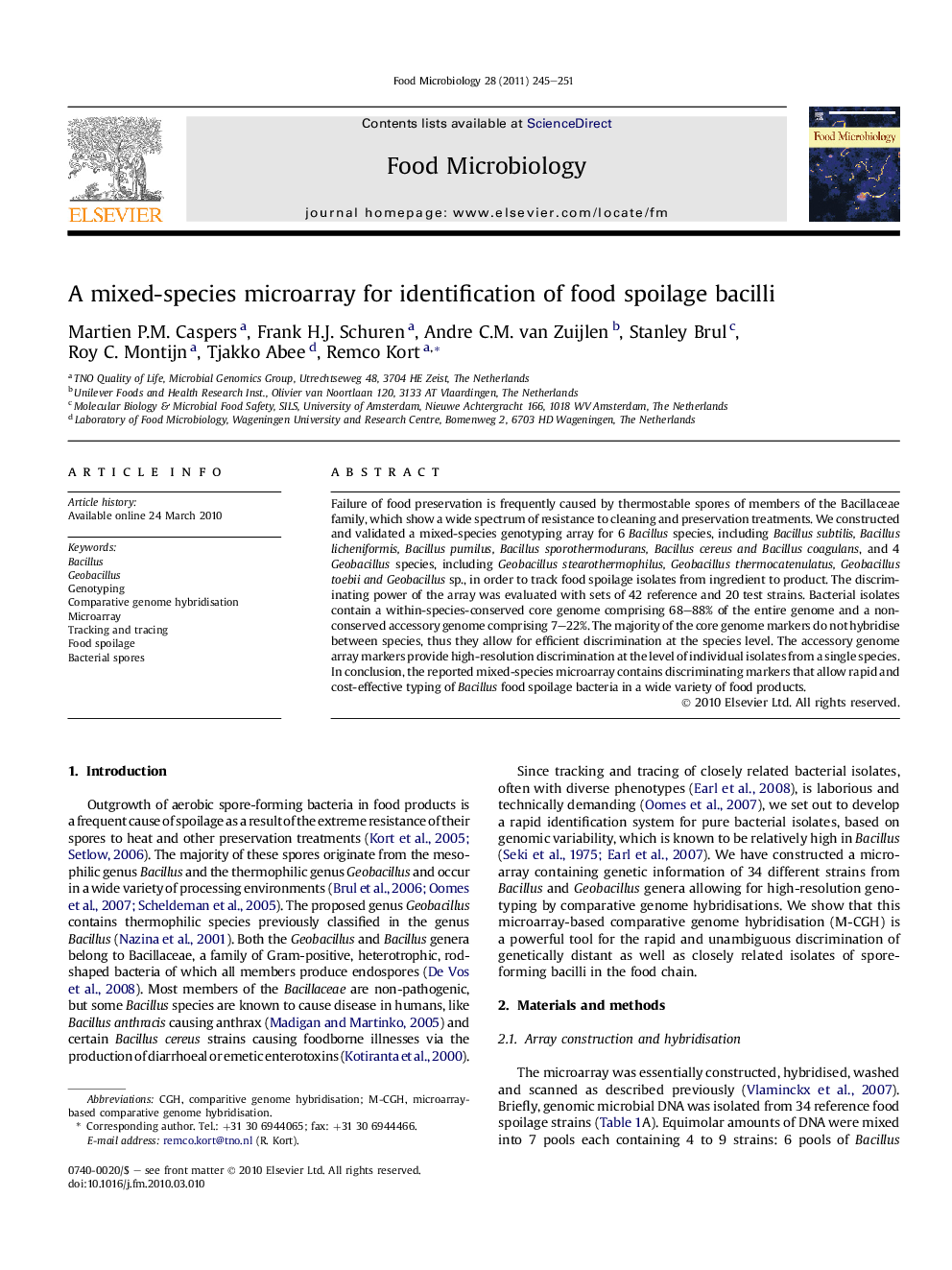| Article ID | Journal | Published Year | Pages | File Type |
|---|---|---|---|---|
| 4363238 | Food Microbiology | 2011 | 7 Pages |
Failure of food preservation is frequently caused by thermostable spores of members of the Bacillaceae family, which show a wide spectrum of resistance to cleaning and preservation treatments. We constructed and validated a mixed-species genotyping array for 6 Bacillus species, including Bacillus subtilis, Bacillus licheniformis, Bacillus pumilus, Bacillus sporothermodurans, Bacillus cereus and Bacillus coagulans, and 4 Geobacillus species, including Geobacillus stearothermophilus, Geobacillus thermocatenulatus, Geobacillus toebii and Geobacillus sp., in order to track food spoilage isolates from ingredient to product. The discriminating power of the array was evaluated with sets of 42 reference and 20 test strains. Bacterial isolates contain a within-species-conserved core genome comprising 68–88% of the entire genome and a non-conserved accessory genome comprising 7–22%. The majority of the core genome markers do not hybridise between species, thus they allow for efficient discrimination at the species level. The accessory genome array markers provide high-resolution discrimination at the level of individual isolates from a single species. In conclusion, the reported mixed-species microarray contains discriminating markers that allow rapid and cost-effective typing of Bacillus food spoilage bacteria in a wide variety of food products.
